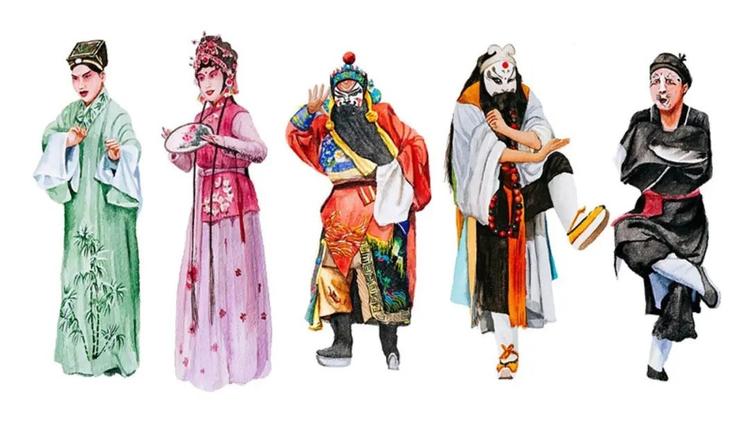Peking Opera
Peking Opera, also known as Beijing Opera or Jingju, stands as a pinnacle of Chinese cultural heritage. This guide will delve into its history, key elements, major characters, and provide essential tips for travelers eager to experience this enchanting performance art during their visit to China.
Table of Contents
Introduction
Peking Opera, a traditional Chinese theater form, emerged from the fusion of several ancient Chinese theatrical forms. It gained prominence during the Qing Dynasty and became fully recognized by the mid-19th century. Known for its elaborate costumes, distinctive makeup, and unique performance style, it’s considered an integral part of China’s national identity.
Historical Background
Peking Opera’s roots can be traced back to the late 18th century when it began to take shape through the integration of various regional performance styles. Over time, it evolved into a refined art form, blending music, dance, drama, and visual artistry. Its popularity soared during the Qing Dynasty, captivating audiences from all walks of life.
Understanding Peking Opera
Key Elements
- Music: Peking Opera features two main musical styles – Xipi and Erhuang, accompanied by traditional Chinese instruments such as the jinghu and drums.
- Vocal Performance: Performers utilize four main types of vocal performance: singing, speech, recitative, and heightened speech, each demanding exceptional control and vocal skills.
- Costumes and Makeup: Characterized by elaborate costumes and symbolic makeup, Peking Opera’s visual elements play a vital role in conveying character traits and emotions.
Major Character Types

- Sheng: Portraying male roles, including Laosheng (old men), Xiaosheng (young men), and Wusheng (martial men).
- Dan: Representing female roles, with subcategories such as Qingyi (virtuous women) and Huadan (lively young women).
- Jing: Depicting painted face male roles, often representing warriors or villains.
- Chou: Portraying comic roles, ranging from jesters to cunning old men.
Experiencing Peking Opera in China
Top Venues
- Liyuan Theatre, Beijing: Known for offering performances with English subtitles, making it accessible to non-Mandarin speakers.
- Chang’an Grand Theatre, Beijing: Renowned for its authentic performances, providing a deep dive into traditional Peking Opera.
- Shanghai Grand Theatre: Blending modernity with tradition, this venue offers a unique setting for experiencing Peking Opera in Shanghai.
Dig DEEPER: Best Beijing Opera Theaters: Where to Enjoy Authentic Peking Opera
How to Fully Appreciate Peking Opera
- Understand the Story: Familiarize yourself with the plot and character backgrounds before attending a performance.
- Appreciate the Artistry: Pay attention to the elaborate costumes, symbolic makeup, and performers’ exquisite control over gestures and expressions.
- Focus on the Music: Listen to the unique combination of vocals and instruments, which play a crucial role in setting the tone and advancing the narrative.
Tips for Travelers
- Book in Advance: Popular venues often sell out, especially during peak tourist seasons, so it’s advisable to book tickets ahead of time.
- Opt for English Subtitles: Look for performances with English subtitles to enhance your understanding and enjoyment.
- Dress Comfortably: While there’s no strict dress code, prioritize comfort as performances can last for several hours.
- Arrive Early: Arriving early allows time to settle in and perhaps catch pre-show demonstrations or makeup application sessions.
Festivals and Special Performances
Several festivals and events in China feature Peking Opera performances, providing opportunities to witness grand productions and immerse yourself in the cultural celebration.
Learning More
For those interested in delving deeper into Peking Opera, resources such as books, documentaries, and workshops offer valuable insights into its history, techniques, and significance.
FAQs
Q1: Is Peking Opera suitable for children?
Yes, children can enjoy Peking Opera, especially the visually captivating scenes and acrobatics, though the length of performances might be challenging for younger viewers.
Q2: How long is a typical Peking Opera performance?
Performances can vary in length, typically lasting from 1 to 3 hours depending on the repertoire.
Q3: Can I take photos during the performance?
Photography is generally not allowed during performances to avoid disrupting both performers and audience members. Always adhere to the theater’s policies.
Conclusion
Peking Opera offers a mesmerizing journey into the heart of Chinese culture, captivating audiences with its rich traditions and artistic brilliance. Whether you’re a seasoned opera enthusiast or a curious traveler, experiencing Peking Opera in China promises to be a memorable and enlightening adventure, immersing you in the timeless beauty and cultural depth of this cherished art form.


